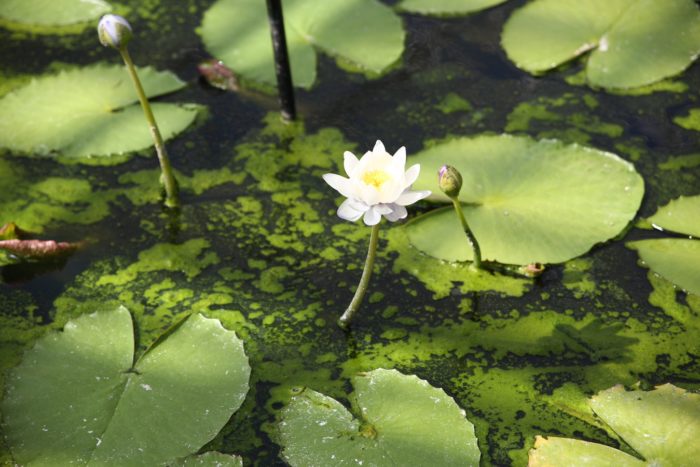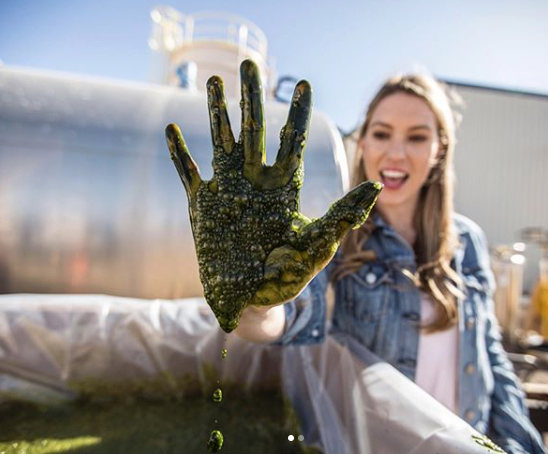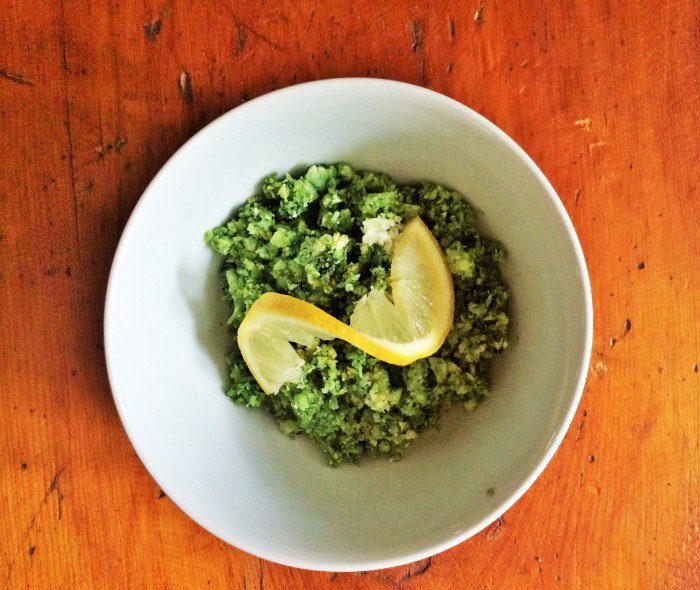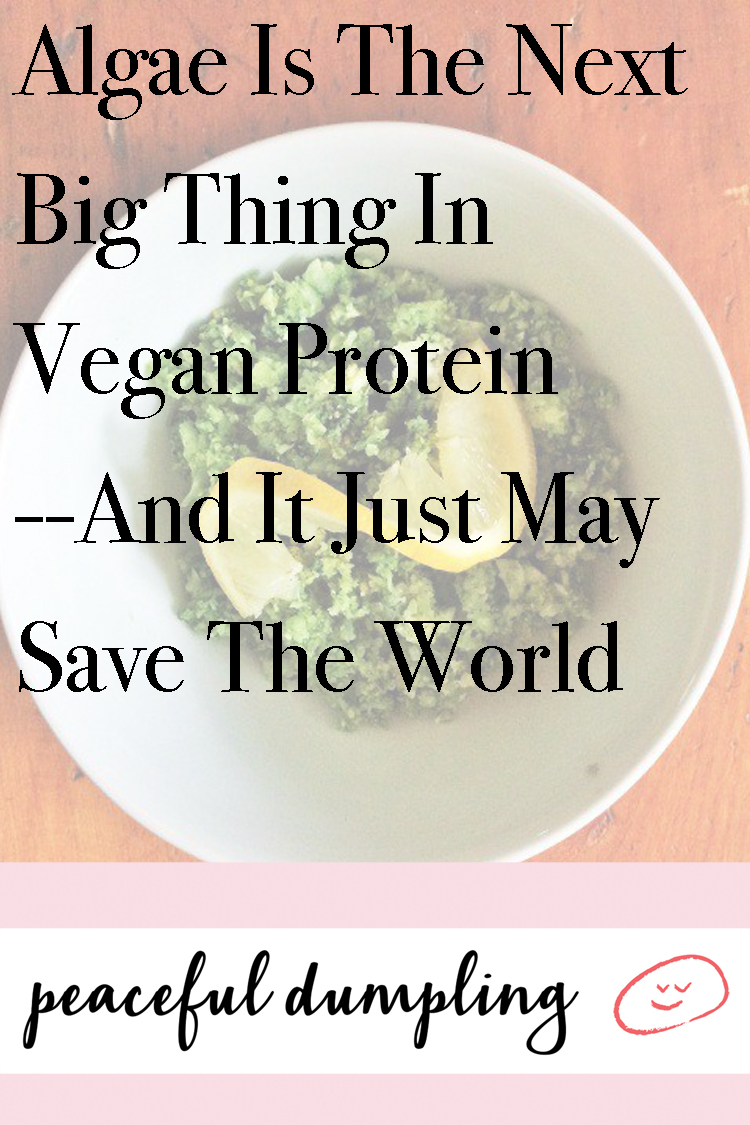Algae — the slimy, green, leafless organism that typically grows at the bottom of murky ponds — often gets a bad rap. Granted, algal blooms can produce harmful toxins when they become overgrown, but when harvested and utilized effectively, this super crop definitely has the potential for paving the way towards a more sustainable future.

From skin care products to nutritional supplements, there are a multitude of commercial items that have already harnessed the power of algae. Due to the fact that algae can be sustainably sourced and easily cultivated, they are terrific alternatives to polluting ingredients and can be used in a variety of products like sneakers, plastics (hooray for algae-based, edible packaging!), fertilizers, cosmetics, and can even be used as renewable sources of energy via algae biofuels!
If this wasn’t proof enough at how beneficial these little organisms are at reducing pollution (by way of plastics, fossil fuels, etc.), a recent CNN article says this super crop also has the potential for being the food of the future. And if the world’s current agricultural practices and factory farming standards are anything to go by, a more sustainable food source is much needed.

CNN reporter Rachel Crane gets her hands dirty at an algae farm in New Mexico.
If you’re not quite aware of the current state of the planet as it pertains to food, the article helps get readers up to speed by rattling off some pretty alarming facts:
- By 2050, the world’s population will have increased by 2.5 billion people.
- In order to match this demand, food production will need to increase by up to 70 percent.
- Currently, 70 percent of the world’s freshwater sources are used for crops and raising livestock.
- Plus, about 37 percent of the earth’s land is used just for agriculture!
Simply put, the world’s highly unsustainable food practices cannot keep up the demand of the ever-growing population. Thankfully, it appears algae is just what the planet needs to make its food system less resource-intensive and far more efficient. And as more companies grow more aware of just how harmful their production processes are for the environment, there are now a plethora of algae-based food alternatives flooding the markets.

For a taste of the superfood, try blue-green microalgae in the form of Spirulina in this Vegan Spirulina Cauliflower recipe. (Surprisingly, this pond scum is more protein-packed than a flank steak!)

Or perhaps try this chlorella-rich Green Smoothie recipe!
Along with being highly sustainable, algae is a sound solution to the world’s food crisis because of its many nutritional benefits. Depending on which strand is used, microalgae are packed with protein and are high in fiber as well as vitamin A, B, C, and E (just to name a few).
One company utilizing the protein-rich organism is iWi (pronounced ee-we), which currently sells algae-based supplements (omega-3, EPA, DHA, and prenatal multivitamins) that are 100 percent vegan and sustainable. Their algae farm, which is located in Columbus, New Mexico, is working to perfect their strand of algae, which currently contains 40 percent protein and (given the same amount of land usage) can produce about seven times the amount of protein as soybeans!
Other companies are embracing algae and have begun incorporating it into their products. Enjoy Life Foods has begun using algal powder as a sustainable alternative to plant-based proteins like soy, and The Algae Factory offers a vegan, dark chocolate bar filled with 3 grams of Spirulina. Of course, nowadays can find algae in just about anything — chips, protein bars, you name it!
If you’re still not quite sold on the notion that algae is the protein of the future, here’s a quick breakdown of how the different protein sources stack up:
Spirulina: 48g of protein per 3-oz serving
Chlorella: 48g of protein per 3-oz serving
Steak: 26g of protein per 3-oz serving
Beef: 21g of protein per 3-oz serving
Chicken: 21g of protein per 3-oz serving
Quinoa: 15.78g of protein per 3-oz serving
Tofu: 6g of protein per 3-oz serving

So, how about that green smoothie?
Also by Audrey: These Biodegradable Vegan Leather Alternatives Are Fashion’s Future (So Long, PVC)
Related: These Healthy Eating Rules Keep Rosie Huntington-Whitely In Top Shape
Jenna Dewan Swears By *This* Vegan Superfood To Get Her Insane Glow & Energy
Get more like this—Subscribe to our daily inspirational newsletter for exclusive content!
__
Photos: Jaleel Akbash via Unsplash, Rachel Crane via Instagram, Jessica Riley-Norton, Quincy Malesovas
